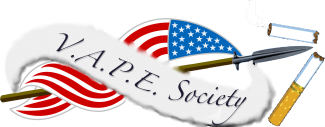The Rest of the Story
If you look at the list of sponsors of the Massachusetts Health Council’s awards gala, you’ll find a long list of health organizations, including my own Boston University School of Public Health, the BU School of Medicine, the Harvard University T.H. Chan School of Public Health, the University of Massachusetts Medical School, and the Dana Farber Cancer Institute. But if you look a little more carefully, you’ll see that one of the “health organizations” that is sponsoring the awards gala is the Coca-Cola Company.
It was just this past Monday that Dan Aaron and I published an article explaining how the soda companies are using corporate sponsorship as a tool to improve their public image, divert attention from the role of their products in the obesity epidemic, hide the fact that they are lobbying vigorously against public health measures designed to fight obesity, and ultimately – to improve their bottom line: namely, the sale of Coke, their signature brand. We identified 96 different health and medical organizations that accepted funding from Coca-Cola or PepsiCo during the period 2011-2015. We also documented that due to this funding, many of these organizations softened or eliminated their criticism of the soda companies, downplayed the role of soda consumption in weight gain, and ended their support of policies to reduce soda consumption.
It looks like we can add the Massachusetts Health Council to the list, penciling them in for 2016.
By accepting this money from Coca-Cola, the Massachusetts Health Council is allowing itself to be used as a pawn in a grand marketing strategy taken right from the Big Tobacco playbook. The tobacco companies used corporate sponsorship as a marketing tool to “promote tobacco sales, and therefore, the bottom line, for the sponsoring companies. Increased awareness of cigarette brands creates brand familiarity, a factor known to influence consumer buying behaviour. … The second outcome of the marketing functions achieved through tobacco sponsorship is enhanced corporate image, which in turn affects tobacco policy by influencing social attitudes and values regarding tobacco. Through its corporate sponsorship, a tobacco company may be able to create good will among the public, even given the recognition that tobacco is a harmful product. In other words, it may help put a “human” face on the corporation and point out its contributions to the community, taking the focus away from damage caused by its products.”
Corporate sponsorship is being used the same way by the soda companies. By accepting this money, the Massachusetts Health Council is actually playing a role in the marketing of soda by these companies. Clearly, participating in the marketing of soda is not consistent with the mission of the Massachusetts Health Council.
The Massachusetts Health Council should follow the lead of other health organizations such as the Academy of Nutrition and Dietetics and the American Academy of Pediatrics and renounce its sponsorship by the Coca-Cola Company.
